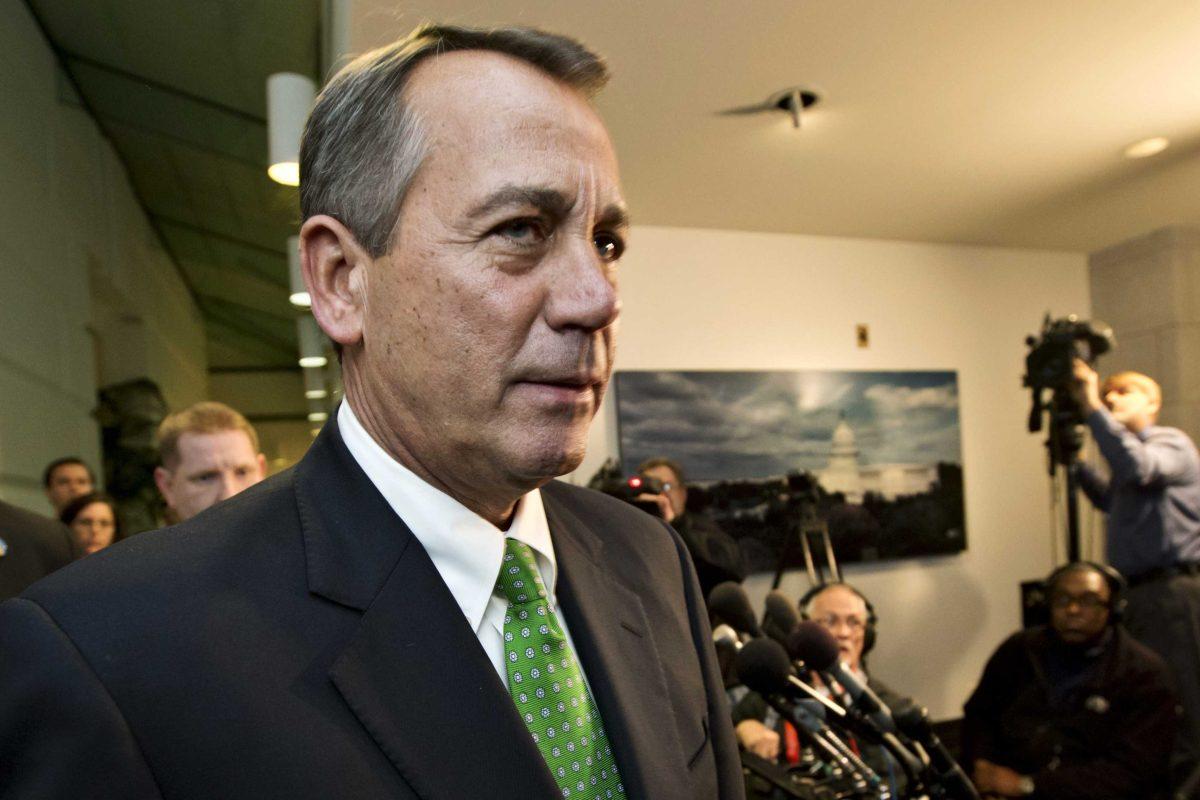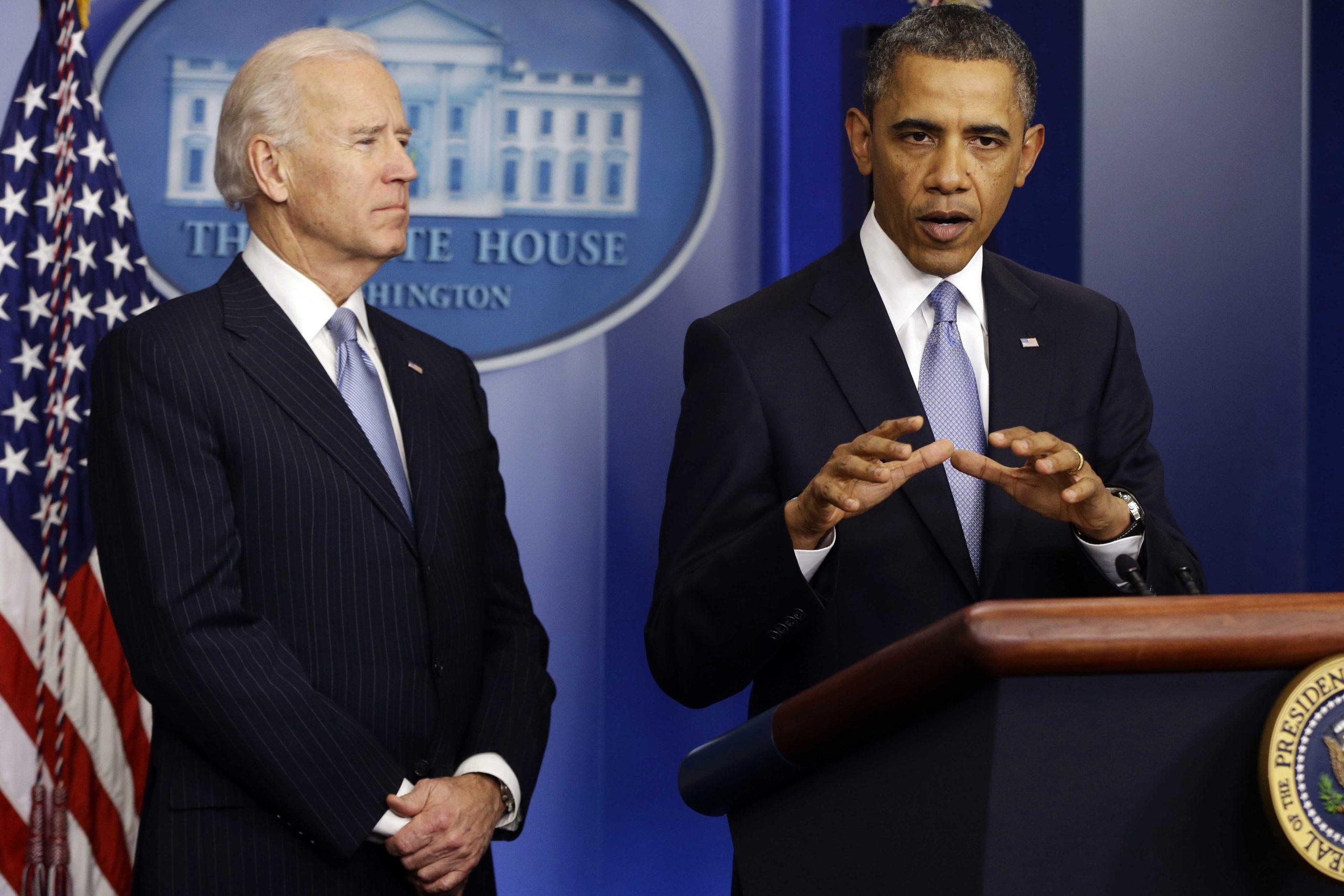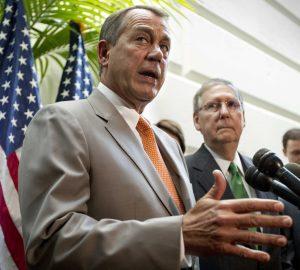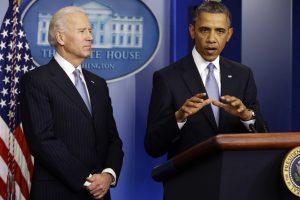Despite the furor surrounding the fiscal cliff deal passed by the House of Representatives on the first day of 2013, University administrators say few concrete economic changes will affect the nation’s economy, let alone college students.
Families or individuals supporting college students will no longer have to worry about the college tax credit expiring. The credit was set to expire in 2012, but will now span until 2017.
According to the IRS, the tax credit is still worth up to $2,500. No changes in numbers were made, but the credit was extended.
With more students struggling to get jobs after graduation, the extension of joblessness benefits suggests a direct effect on jobless post-graduates.
James Richardson, director of Public Administration Institute and John Rhea Alumni professor of economics, said the joblessness benefits would not apply to any student graduating.
He said it is for people who have worked and are now out of work. Richardson said there are still economic hurdles, like the spending issue and the debt ceiling.
“Nothing has changed dramatically since 2012. It’s all the same,” Richardson said.
Richardson said the dramatization of the deal was not for economics but for politics.
“It’s a political issue, not really an economic issue. From an economic perspective, there is no urgency. It’s a political issue and deadline. It’s something we’ve imposed on ourselves,” Richardson said.
In an op-ed piece for Politico on Dec. 6, Gov. Bobby Jindal wrote a similar opinion.
“I had the honor of serving in Congress. Here’s what I learned – there will be no significant change without structural reforms,” Jindal wrote.
Trey Truitt, associate director of Employment Services for Career Services, said the recession and fiscal cliff make it tougher for students to find jobs after college.
“A lot of companies have reduced their hiring,” Truitt said. “A large company may still hire 50 in a fiscal year, but half of those jobs are filled in August because they are filling them through internships.”
Truitt said he feels the job market has gotten better, but companies are changing the way they hire. Because of affordability, companies now try to locate talents in interns and later convert interns to higher positions, he said.
He said students now more than ever have to plan for jobs after graduation.
“If students aren’t prepared for that, they are really getting behind the ball,” Truitt said.
“It’s a political issue, not really an economic issue. From an economic perspective, there is no urgency. It’s a political issue and deadline. It’s something we’ve imposed on ourselves.”
-
FILE – In this Jan. 1, 2013, file photo, President Barack Obama, right, and Vice President Joe Biden make a statement regarding the passage of the fiscal cliff bill in the Brady Press Briefing Room at the White House in Washington. After Republicans and Democrats alike reluctantly shunned their core supporters and reached a bipartisan compromise to avert a fiscal crisis, there’s a reasonable question to ask: Did American lawmakers actually _ for a moment, at least _ listen to the regular Joes and Janes pleading for a gridlocked Washington to get something, anything, done? (AP Photo/Charles Dharapak, File)
-
FILE – In this June 6, 2012, House Speaker John Boehner of Ohio, accompanied by Senate Minority Leader Mitch McConnell of Ky., right, gestures during a news conference on Capitol Hill in Washington. President Barack Obama had a clear political edge in his fight with Republicans over the fiscal cliff, and used it to his advantage. In the upcoming battle over federal borrowing and spending, the leverage will be more evenly divided and the outcome less predictable. In the fiscal cliff fight, Obama wanted to block automatic New Year’s Day tax increases on everyone but the country’s highest earners. Republicans were trying to protect upper-income people from those tax hikes, but eventually gave in because they didn’t want to be blamed for the higher middle-class taxes that a stalemate would have triggered. Next come three deadlines that will almost certainly become entwined. The government will run out of cash in about two months and the Obama administration will need congressional approval to borrow more money or face a first-ever federal default, threatening global, economy-rattling consequences. Boehner and McConnell have said they won’t agree to a debt-limit extension without an accord to cut spending. Just as adamantly, Obama says the government’s debt ceiling must be raised and he won’t negotiate over it, though he says he would bargain over spending cuts and tax increases to reduce federal deficits. (AP Photo/J. Scott Applewhite, File)
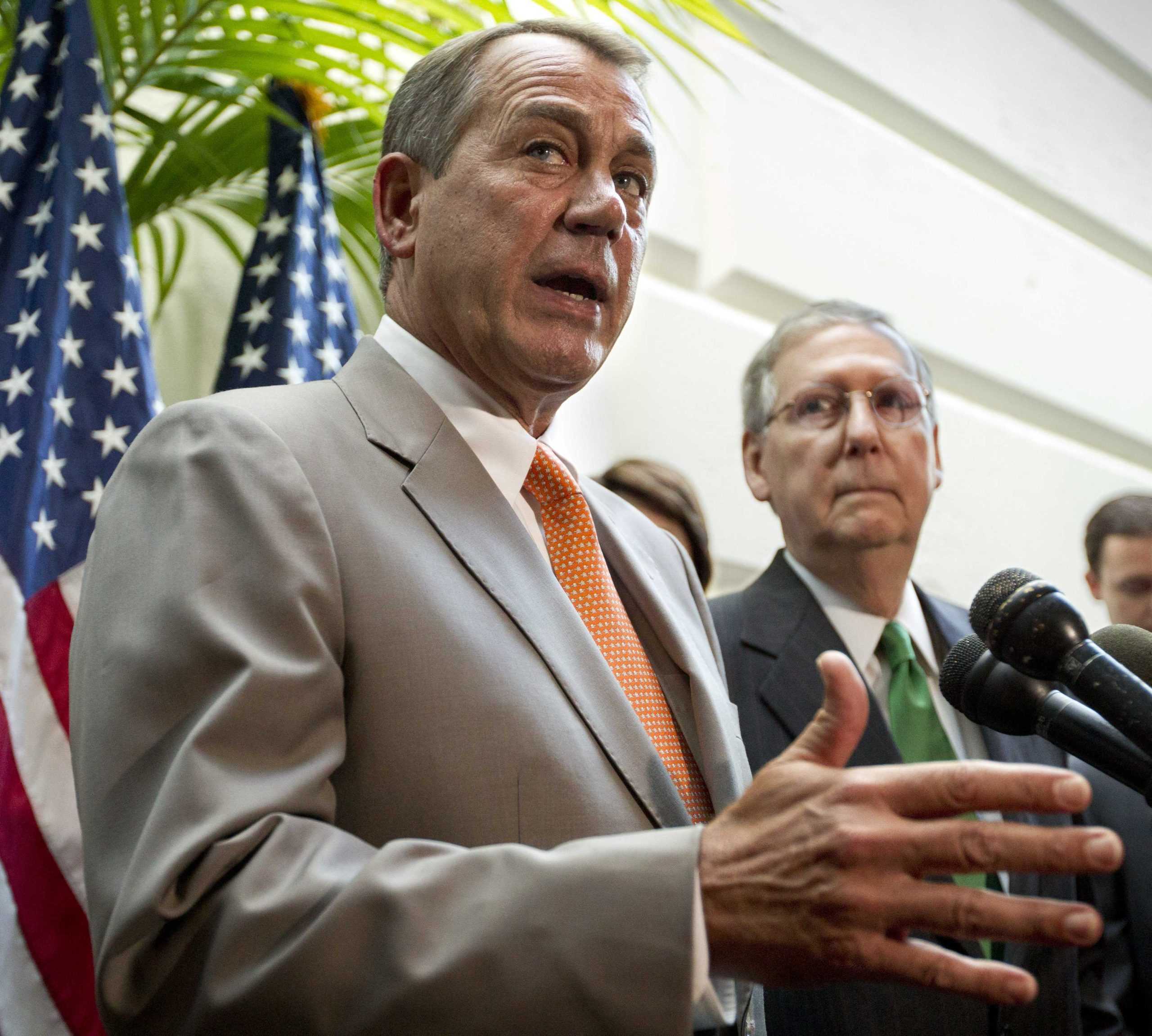
-
FILE – In this Jan. 1, 2013, file photo, President Barack Obama, right, and Vice President Joe Biden make a statement regarding the passage of the fiscal cliff bill in the Brady Press Briefing Room at the White House in Washington. After Republicans and Democrats alike reluctantly shunned their core supporters and reached a bipartisan compromise to avert a fiscal crisis, there’s a reasonable question to ask: Did American lawmakers actually _ for a moment, at least _ listen to the regular Joes and Janes pleading for a gridlocked Washington to get something, anything, done? (AP Photo/Charles Dharapak, File)
-
FILE – In this June 6, 2012, House Speaker John Boehner of Ohio, accompanied by Senate Minority Leader Mitch McConnell of Ky., right, gestures during a news conference on Capitol Hill in Washington. President Barack Obama had a clear political edge in his fight with Republicans over the fiscal cliff, and used it to his advantage. In the upcoming battle over federal borrowing and spending, the leverage will be more evenly divided and the outcome less predictable. In the fiscal cliff fight, Obama wanted to block automatic New Year’s Day tax increases on everyone but the country’s highest earners. Republicans were trying to protect upper-income people from those tax hikes, but eventually gave in because they didn’t want to be blamed for the higher middle-class taxes that a stalemate would have triggered. Next come three deadlines that will almost certainly become entwined. The government will run out of cash in about two months and the Obama administration will need congressional approval to borrow more money or face a first-ever federal default, threatening global, economy-rattling consequences. Boehner and McConnell have said they won’t agree to a debt-limit extension without an accord to cut spending. Just as adamantly, Obama says the government’s debt ceiling must be raised and he won’t negotiate over it, though he says he would bargain over spending cuts and tax increases to reduce federal deficits. (AP Photo/J. Scott Applewhite, File)



